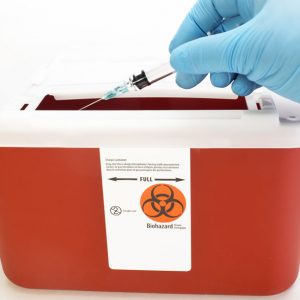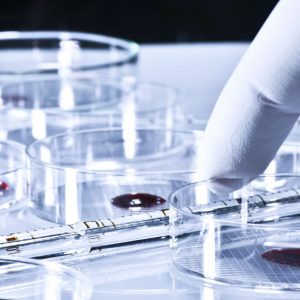Dental Assistant Certificate Course
It is rare to come across a dental clinic or office that functions efficiently in the absence of dental assistants. Dental assistants help dentists perform clinical procedures, manage patient care as well as oversee the administrative and clerical operations. Dental assistants are responsible for performing a range of functions and duties.
What you will learn
In this course, you will learn:
- The different members of the dental team, their roles and responsibilities and how to work in a team environment
- The different skills and qualifications that you will require in order to become a dental assistant
- Different principles underlying organisation and operation of a dental office including administrative and clerical duties such as filing, computerisation of records and so on.
- Detailed insights into oral health, anatomy and hygiene as well as dental charting
- How to maintain health and safety standards in a dental office by complying with regulations and rules
- Communication techniques that will include interactions with patients, other healthcare professionals, colleagues and dentists. You will learn how to welcome a patient, provide information, clarify doubts and prepare the patients by making them comfortable
- How to provide chair-side assistance to the dentist by fabricating temporary restorations, cleaning and polishing removable dental appliances
- How to maintain infection control and protecting the dental team by following correct protocols
- How to manage instrumentation by sterilising and positioning instruments for easy access; passing instruments to the dentist during dental procedures and suctioning them
- How to select, mix and place materials on instruments as well as inside the patient’s mouth
- How to assist the dentist during medical and dental emergencies by maintaining CPR certifications and assisting with oxygen and drug supply
- Maintenance of dental equipment and operation according to manufacturer’s instructions, trouble-shooting, calling the manufacturer for repairs and evaluating new equipment
- How to manage inventory by checking stocks, anticipating requirements, placing and verifying orders
Benefits of taking this course:
The benefits of doing the dental assistant certificate course include:
- A clear understanding of your duties and responsibilities in the dental office or clinic; you will develop improved communication techniques and will be able to help patients quell their fears and feel at ease
- You will also develop a mixed set of skills including interpersonal and technical skills. The reinforcement of different techniques will help you provide able and efficient assistance to the dentist. Moreover, you will become skilful at performing tasks such as taking oral impressions and radiographs etc. Competent dental assistants significantly increase the efficiency levels of the dentists and contribute to the overall success of the clinic
The modules are designed to provide maximum information explained in detail and includes all the important information that you need in order to acquire competency as a dental assistant. The course will provide you with the training necessary to make your knowledge meaningful and necessary. You will acquire the principles, values and understanding required to help you excel in your chosen career.
Modules:
Module 1 : Introduction to the Dental Profession, Dental Team and Standards of Practice
Definition of dentistry
A brief history of dentistry
Types of dentists
Overview of the dental profession in the UK
Module 2 : Standards of Dental Practice in the UK
The General Dental Council (GDC) of UK
Codes of ethics governing the dental profession
Prioritising patient requirements
Non-verbal patient communication
Module 3 : Standards of Dental Practice in the UK (Part II)
Obtaining patient consent for dental treatment
Obtaining consent for child patients
Protection and maintenance of patient information and confidentiality
Dental patient records
Module 4 : Dental Assistant Skills, Duties and Qualifications and How to Maintain and Organise a Dental Office
Skills, qualifications and duties of a dental assistant
Patient interaction in the front office and treatment room
Outlining the proper procedure for responding to an incoming call
An overview of office business technology
Module 5 : Oral Health and Preventative Techniques
Preventative dentistry and patient motivation for different age groups
Formation of plaque, causes, effects and preventative measures
Oral hygiene aids, including mouth rinses and other inter-dental aids
Application and usage of disclosing agents
Module 6 : Dental Terminology, Brushing and Flossing Techniques
Dental terminology (important dental terms)
Types of manual and powered toothbrushes
Vibratory, orbital and scrub brushing techniques
Care for dentures, implants and prosthetics
Module 7 : Fluoride and Oral Nutrition in Dentistry
Background of fluoride in relation to the dental industry
Effects of fluoride on dental plaque and tooth decay
Fluoride toxicity and forms of fluoride
Fluoride applications and rinses
Module 8 : General, Head and Neck Anatomy and Physiology and Tooth Morphology
Introduction to organ systems in the human body
Respiratory, digestive, immune and endocrine systems
Skeletal, muscular, Integumentary and nervous systems
Dental anatomy and morphology
Module 9 : Patient Care, Dental Charting and Chair-Side Assistance (I)
How to obtain medical history and perform a preliminary clinical examination
How to help the dentist during procedures
How to perform assessments of vital signs and document them
Dental charts, numbering and important tips
Module 10 : Chair Side Assistance (II), Anaesthesia/Sedation and Ergonomics
How to hold and transfer instruments
One-handed and two-handed transfer methods
How to transfer mouth mirrors, explorers, cotton-pliers, hand-pieces and scissors
The palm, pen, modified pen and thumb-to-nose grasps












